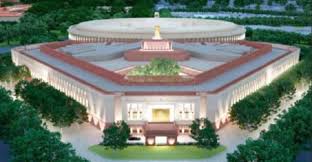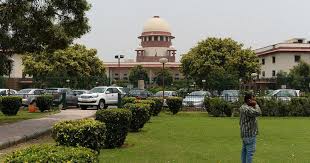Feature
SC to hear Gopal Ansal’s plea on Friday
 New Delhi : The Supreme Court on Tuesday agreed to hear on Friday a plea by Uphaar owner Gopal Ansal not to be jailed for a fire that killed 59 persons at the cinema in 1997.
New Delhi : The Supreme Court on Tuesday agreed to hear on Friday a plea by Uphaar owner Gopal Ansal not to be jailed for a fire that killed 59 persons at the cinema in 1997.
Arguing that he does not want to undergo the remaining part of his one year sentence, Gopal Ansal’s plea seeks parity with elder brother Sushil Ansal who was let off with the sentence he has already served.
Sushil Ansal’s age and ailments were taken into consideration while not sending him to prison.
A three-judge bench headed by Chief Justice Jagdish Singh Khehar will hear the matter on Friday.
Gopal Ansal moved the court urging it to modify its order sending him to jail, with almost a week left for him to surrender.
The court on February 9 sentenced the builder to one year in jail.
Gopal Ansal was to surrender by March 9 to serve seven months in jail as he has been jailed for four months previously.
He said the court could not deny him the same relief extended to Sushil Ansal because his medical condition too was equally precarious.
Goapl Ansal wants the court to extend the time of his surrender till it decides his application.
He said he has hearing impairment, due to which he claimed he has fainted several times.
Expressing “genuine remorse” for those who died in the “unfortunate tragedy”, he contended he had borne the punishment more than he deserved.
The court had said that since Gopal Ansal, 69, did not suffer any age-related complications, as was the case with Sushil Ansal, 77, there could be no principle of parity and he must spend one year in prison.
The Ansals, who co-owned the Uphaar cinema in south Delhi, were held guilty of “criminal negligence” but escaped jail terms beyond a few months after the top court’s 2015 order.
A huge fire broke out at Uphaar when Hindi movie “Border” was being screened on June 13, 1997. Trapped inside, 59 persons died of asphyxia and over 100 were injured in a stampede.
Entertainment
Meghalaya Reserves Legalized Gambling and Sports Betting for Tourists

The State Scores Extra High on Gaming-Friendly Industry Index
Meghalaya scored 92.85 out of 100 possible points in a Gaming Industry Index and proved to be India’s most gaming-friendly state following its recent profound legislation changes over the field allowing land-based and online gaming, including games of chance, under a licensing regime.
The index by the UK India Business Council (UKIBC) uses a scale of 0 to 100 to measure the level of legalisation on gambling and betting achieved by a state based on the scores over a set of seven different games – lottery, horse racing, betting on sports, poker, rummy, casino and fantasy sports
Starting from February last year, Meghalaya became the third state in India’s northeast to legalise gambling and betting after Sikkim and Nagaland. After consultations with the UKIBC, the state proceeded with the adoption of the Meghalaya Regulation of Gaming Act, 2021 and the nullification of the Meghalaya Prevention of Gambling Act, 1970. Subsequently in December, the Meghalaya Regulation of Gaming Rules, 2021 were notified and came into force.
All for the Tourists
The move to legalise and license various forms of offline and online betting and gambling in Meghalaya is aimed at boosting tourism and creating jobs, and altogether raising taxation revenues for the northeastern state. At the same time, the opportunities to bet and gamble legally will be reserved only for tourists and visitors.
“We came out with a Gaming Act and subsequently framed the Regulation of Gaming Rules, 2021. The government will accordingly issue licenses to operate games of skill and chance, both online and offline,” said James P. K. Sangma, Meghalaya State Law and Taxation Minister speaking in the capital city of Shillong. “But the legalized gambling and gaming will only be for tourists and not residents of Meghalaya,” he continued.
To be allowed to play, tourists and people visiting the state for work or business purposes will have to prove their non-resident status by presenting appropriate documents, in a process similar to a bank KYC (Know Your Customer) procedure.
Meghalaya Reaches Out to a Vast Market
With 140 millions of people in India estimated to bet regularly on sports, and a total of 370 million desi bettors around prominent sporting events, as per data from one of the latest reports by Esse N Videri, Meghalaya is set to reach out and take a piece of a vast market.
Estimates on the financial value of India’s sports betting market, combined across all types of offline channels and online sports and cricket predictions and betting platforms, speak about amounts between $130 and $150 billion (roughly between ₹9.7 and ₹11.5 lakh crore).
Andhra Pradesh, Telangana and Delhi are shown to deliver the highest number of bettors and Meghalaya can count on substantial tourists flow from their betting circles. The sports betting communities of Karnataka, Maharashtra, Uttar Pradesh and Haryana are also not to be underestimated.
Among the sports, cricket is most popular, registering 68 percent of the total bet count analyzed by Esse N Videri. Football takes second position with 11 percent of the bets, followed by betting on FIFA at 7 percent and on eCricket at 5 percent. The last position in the Top 5 of popular sports for betting in India is taken by tennis with 3 percent of the bet count.
Local Citizens will Still have Their Teer Betting
Meghalaya residents will still be permitted to participate in teer betting over arrow-shooting results. Teer is a traditional method of gambling, somewhat similar to a lottery draw, and held under the rules of the Meghalaya Regulation of the Game of Arrow Shooting and the Sale of Teer Tickets Act, 2018.
Teer includes bettors wagering on the number of arrows that reach the target which is placed about 50 meters away from a team of 20 archers positioned in a semicircle.
The archers shoot volleys of arrows at the target for ten minutes, and players place their bets choosing a number between 0 and 99 trying to guess the last two digits of the number of arrows that successfully pierce the target.
If, for example, the number of hits is 256, anyone who has bet on 56 wins an amount eight times bigger than their wager.





















